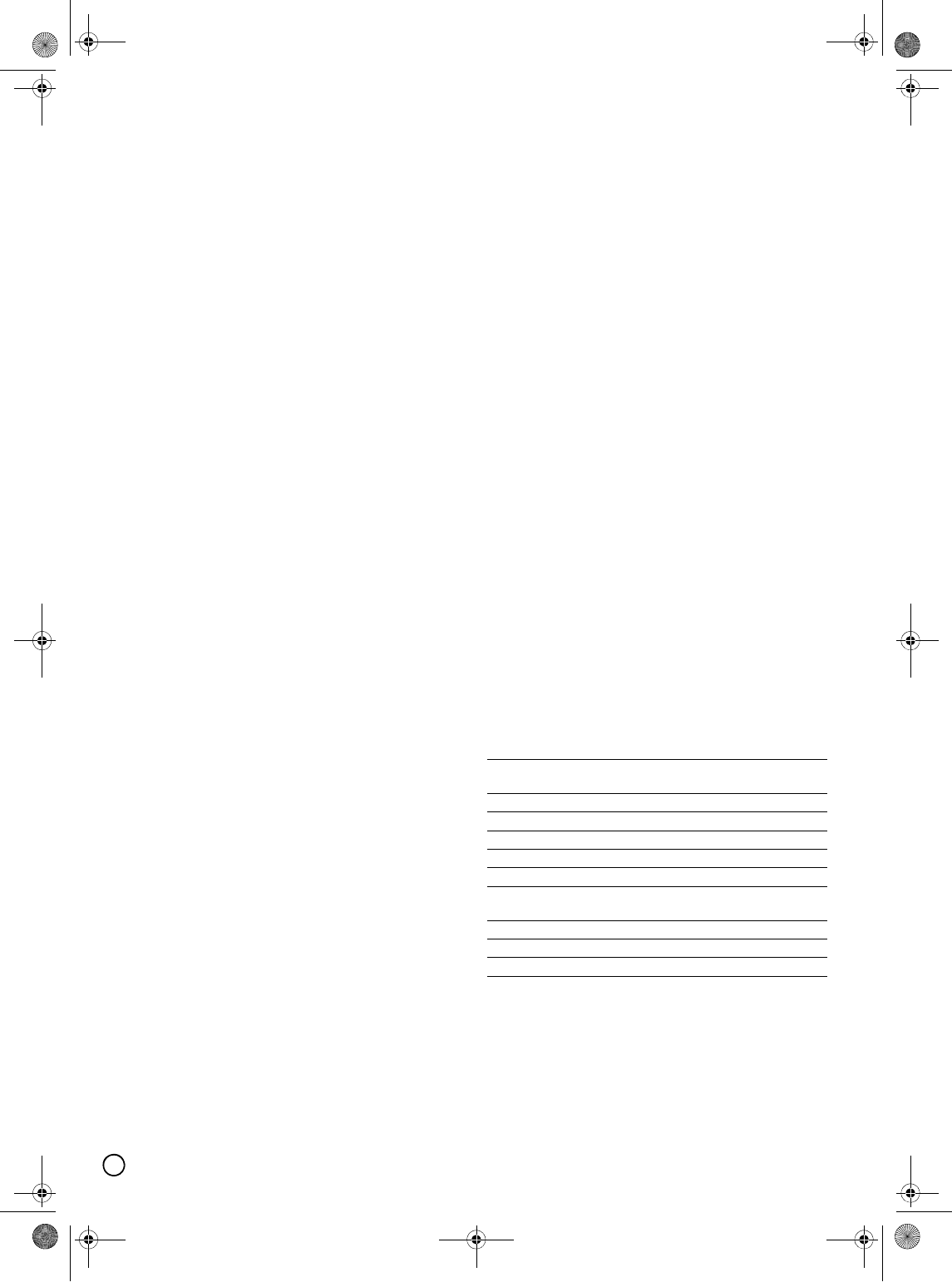
54
Dubbing
Before Dubbing
Use the copying features of this recorder to:
• Back up important recordings stored on the HDD to a
DVD.
• Make a DVD copy of a recording on the HDD to play
in another player.
• Transfer video from a DVD to the HDD for editing.
• Transfer edited video from the HDD to DVD.
The simplest method of copying is to use the One
Touch Copy feature. Using this you can very simply
copy the title that’s currently playing from HDD to DVD,
or the other way around.
Note:
If the title’s length is less than 5 seconds, the dubbing is
not available. (from HDD to DVD)
Restrictions on copying
Some video material is copy-once protected: Such
material cannot be copied to HDD or DVD. If you want
to record copy-once protected material to DVD, you
must use a VR mode DVD-RW disc compatible with
CPRM Ver. 1.1.
You can identify copy-once protected material during
playback by displaying disc information on-screen.
• A media in NTSC format cannot be copied.
• Video that is ‘copy-once only’ can only be recorded
using DVD-RAM disc or DVD-RW disc in VR mode
with CPRM (see below).
What is ‘CPRM’?
CPRM is a copy protection system (with scramble
system) only allowing the recording of ‘copy once’
broadcast programs. CPRM stands for Content
Protection for Recordable Media.
This Recorder is CPRM compatible, which means that
you can record copy-once broadcast programs, but you
cannot then make a copy of those recordings. CPRM
recordings can only be made on DVD-RAM discs or
DVD-RW discs formatted in VR mode, and CPRM
recordings can only be played on players that are
specifically compatible with CPRM.
Copyright
• Recording equipment should be used only for lawful
copying and you are advised to check carefully what
is lawful copying in the area in which you are making
a copy. Copying of copyright material such as films or
music is unlawful unless permitted by a legal
exception or consented to by the rights owner.
• This product incorporates copyright protection
technology that is protected by method claims of
certain U.S. patents and other intellectual property
rights owned by Macrovision Corporation and other
rights owners. Use of this copyright protection
technology must be authorized by Macrovision
Corporation, and is intended for home and other
limited viewing uses only, unless otherwise
authorized by Macrovision corporation. Reverse
engineering or disassembly is prohibited.
• CONSUMERS SHOULD NOTE THAT NOT ALL
HIGH DEFINITION TELEVISION SETS ARE FULLY
COMPATIBLE WITH THIS PRODUCT AND MAY
CAUSE ARTIFACTS TO BE DISPLAYED IN THE
PICTURE. IN CASE OF 625 PROGRESSIVE SCAN
PICTURE PROBLEMS, IT IS RECOMMENDED
THAT THE USER SWITCH THE CONNECTION TO
THE ‘STANDARD DEFINITION’ OUTPUT.
Fast copying (Maximum 12×)
Copying between DVD and HDD is a completely digital
process and therefore involves no loss of quality in the
audio or video. This means that you can transfer back
and forth without having to worry about the quality
getting worse with each copy ‘generation’. It also
means that copying can be carried out at the maximum
speed possible.
When copying from HDD to DVD, the speed of copying
depends on the recording mode and the kind of DVD
disc you’re using.
Minimum fast copying times
The table below shows the minimum HDD to DVD
copying time for 2 hours of video recorded with SP
mode.
Notes:
• All times in the above table are approximate.
• Actual copy speed varies with the part of the disc
being recorded.
• There may be cases where even 4×/6×/8×/16×
compatible discs do not copy at full speed.
• Fast copying may not be possible when using disc
initialized on another recorder.
Disc
Type
Disc
Speed
Copying Time
(Record Speed)
DVD-R/DVD+R 16× 6.5 min. (12×)
DVD-R/DVD+R/DVD+RW 8× 8 min. (8×)
DVD+R DL 8× 13 min. (4×)
DVD-RW 6× 12 min. (6×)
DVD-RAM 5× 11.5 min. (5×)
DVD-R/DVD+R
DVD-RW/DVD+RW
4× 13 min. (4×)
DVD-RAM 3× 17 min. (3×)
DVD+R/DVD+RW/DVD+R DL 2.4× 21 min. (2.4×)
DVD-R/DVD-RW/DVD-RAM 2× 25 min. (2×)
01EN01DVDS253A(AU).book Page 54 Wednesday, June 7, 2006 3:39 PM


















